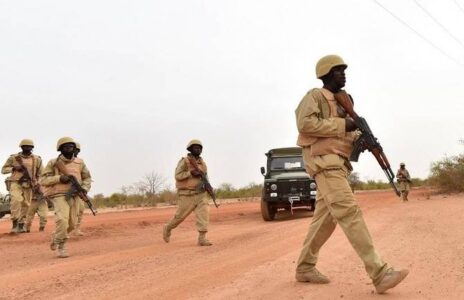
French army killed two terrorist leaders in northeastern Mali
The French minister of the Armed Forces, Florence Parly, announced in a statement on 22 July that France’s operation Barkhane had killed two leaders of the Islamic State in the Greater Sahara (IS-GS) during the night of the 21-22 July.
“In co-ordination with the US military, the Barkhane force launched last night, at very short notice, an operation against a camp of the IS-GS, an organisation affiliated with Daesh, in the Ménaka region” in northeastern Mali, the statement said.
On July 23, Parly indicated that the leaders were Issa Al Sahraoui, “logistics and financial co-ordinator of the IS-GS”, and Abu Abderahmane Al Sahraoui, “who was responsible for pronouncing judgments”.
The first “had been rife in the Sahel for many years. He notably took part in the Inates attack against the Nigerian armed forces in December 2019 and recruited and trained jihadists.” The second “was known to order death sentences. This jihadist had been active in armed terrorist groups in Mali for 10 years,” she added.
In its statement, the ministry recalled that “several high-ranking IS-GS executives had already been neutralised in June, including one of the group leaders, Dadi Ould Chaib, better known as Abu Dardar, as well as Almahmoud ag Baye alias Ikaray, important executive of the IS-GS, close to the leader of the IS-GS Adnan Abou Walid al Sahraoui”.
Additionally, Parly stated that this new operation falls within the framework of France’s strategy to target “terrorist leaders and cadres” and “illustrates [its] determination to continue the fight against armed terrorist groups, alongside [its] Sahelian partners and in co-ordination with [its] European and American allies”.
After more than eight years of significant engagement, French President Emmanuel Macron announced in June a reduction of the French military presence in the Sahel and the end of the anti-jihadist operation Barkhane (currently 5,100 soldiers) in favour of a tightened device, refocused on counterterrorism operations and combat support for local armies, around an international alliance associating Europeans within the Takuba Force.
Source: Common Space





